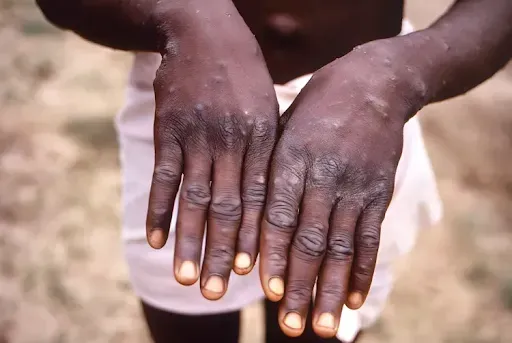Xilli ay cirka isku sii shareerayso xiisadda ka aloosan gobolka Bariga Dhexe, Madaxweynaha Mareykanka Donald Trump ayaa bilaabay inuu miisaamo xulashooyin kala duwan oo ku aadan sidii looga jawaabi lahaa daandaansiga uga imaanaya xukuumadda Tehraan. Wararka laga helayo ilo wareedyada ku dhow Aqalka Cad ayaa tilmaamaya in Madaxweynuhu uu tixgelinayo suurtagalnimada in weeraro dhanka cirka ah lagu qaado goobaha muhiimka ah ee Iiraan si loo wiiqo awooddeeda milatari iyo midda nukliyeerka. Tallaabadan ayaa qayb ka ah qorshaha maamulka Trump ee ah in cadaadis xooggan la saaro Iiraan si looga hortago inay khatar ku noqoto saaxiibada Mareykanka ee gobolka iyo danaha fog ee Washington. Mawqifka Ku-xigeenka Madaxweynaha ee ku aadan dagaallada fog Dhanka kale, Madaxweyne Ku-xigeenka Mareykanka JD Vance ayaa muujiyay dareen ka duwan kan ku aadan lug ku lahaanshaha Mareykanka ee dagaallo muddo dheer qaata oo ka dhaca Bariga Dhexe. Vance ayaa si cad u sheegay in Mareykanku uusan dan ugu jirin...
Declared an international public health emergency once more, mpox calls for Africa to finally get the support it requires.
Once more declaring mpox an international public health emergency is the World Health Organisation (WHO). Once known as monkeypox, this is the second time in two years the illness has attracted such a serious degree of alarm. With the Democratic Republic of the Congo (DRC) in the epicenter, the proclamation comes amid a spike of cases and deaths throughout many East and Central African nations.
Mpox's Remarkable Danger in Africa
While many nations outside of Africa rapidly contained the mpox epidemic in 2022, the DRC has struggled with a deadlier variant of the virus. Clade I, a more severe kind of mpox than the one that has spread to the US and Europe, is the cause of the current epidemic in the DRC. Recently affecting Burundi, Kenya, Rwanda, and Uganda, this strain raises questions over a more general and lethal epidemic.
Though usually less severe, mpox is a viral disease linked to smallpox. It is thought to start with African rodents and non-human primates and travels by close proximity to an infected individual. Usually lasting two to four weeks, symptoms include fever, blister-like rash, tiredness, and muscular aches.
Africa's Mpox Struggles
Mpox is not a recent arrival for Africa. For decades, the illness has periodically erupted in Nigeria, the Democratic Republic of the Congo, and other nations. Still, the current global increase has drawn fresh focus on the continent's difficulties handling the virus. With 7,851 cases and 384 deaths recorded as of May 2024, the epidemic in the Democratic Republic of the Congo is very severe. Now that the strain from the DRC has extended to four surrounding nations, worries about a fresh, more lethal epidemic are growing.
Many African nations, like the DRC, have struggled to get vaccines and other vital supplies in spite of the WHO's 2022 proclamation and worldwide reaction that followed. Africa was mainly left behind as millions of vaccinations were given in the US and Europe. More than two years after the first outbreak, the DRC recently got its first batch of mpox vaccinations. Still, the task is enormous given only 200,000 doses for a population of more than 100 million.
The function of world solidarity
Additionally declaring a public health emergency across the continent is the Africa Centres for Disease Control and Prevention (Africa CDC). Reflecting the urgency of the crisis, this is the first time Africa CDC has done such a move. To stop the epidemic, Africa CDC Director General Jean Kaseya underlined the need of group efforts and financial means.
Still, a lack of worldwide solidarity and a refusal to distribute life-saving tools hinder the response efforts. Though development has been sluggish, the DRC and other African nations still mostly depend on gifts from richer countries. For many in the DRC, where the GDP per capita is just $649, the almost $100 per dose cost of thempox vaccination remains unaffordable.
An exhortation to action
The continuous epidemic of mpox in Africa emphasizes how urgently a more fair worldwide health reaction is needed. Although WHO's and Africa CDC's recent announcements might assist to mobilize more resources, the issue still stands: will it be sufficient?
The world community has to intensify its support of Africa in its battle against mpox. This covers increasing vaccinations, financial support, and technical assistance to improve the public health system of the continent. Given the combined weight of HIV andmpox, which afflicters millions of people all over Africa, our help is especially crucial.
"This is a fight for all Australians, and we will fight it together," Kaseya said. But the rest of the world has to join in and offer the help Africa so sorely needs if this war is to be successful.
Although mpox has been designated an international public health emergency once more, pronouncements by themselves cannot stop the virus from spreading. Effective combat of this fatal epidemic depends on concrete initiatives and consistent worldwide support. Global solidarity's moment is now.





Comments
Post a Comment